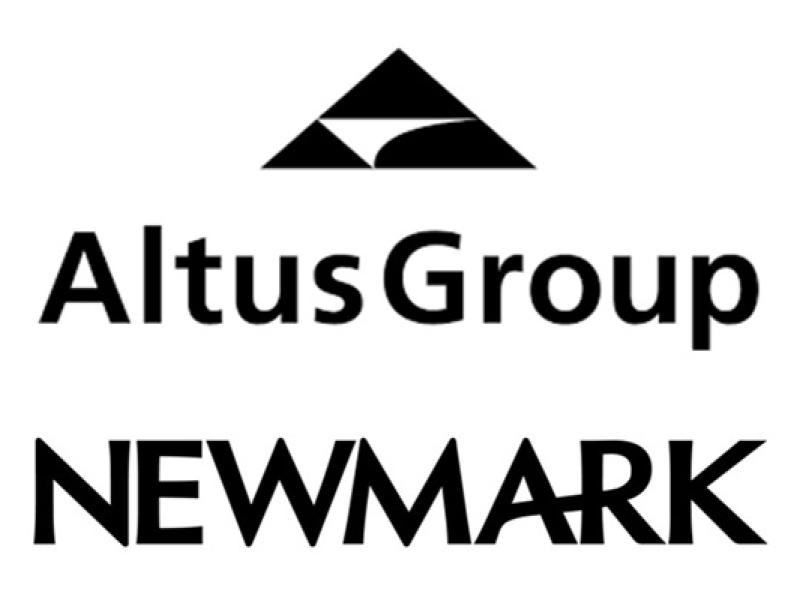
Mark Kenney, president and CEO of CAPREIT. (Courtesy CAPREIT)
When the COVID-19 pandemic struck Canada, apartment owners hunkered down, worried about their ability to collect rents from millions of workers facing layoffs and business shutdowns. Amid what’s currently a mood of cautious optimism, these owners continue to work with their residents, but look forward to kick-starting new growth.
“We’ve seen what has happened out there with other assets. We are in wonderful shape with apartments,” CAPREIT (CAR-UN-T) CEO Mark Kenney said during a recent Real Estate Forums webinar discussing the effects of the pandemic on the multifamily sector.
Government programs are helping most renters hit hardest by the pandemic, so through April and May most apartment owners have collected as much as 95, 97 or even 100 per cent of normal rents and have arranged deferrals or other alternatives for most of the balance.
“Overall, the revenue picture for apartments is extremely strong,” Kenney said.
That was echoed on another webinar, hosted by SVN Rock Advisors CEO Derek Lobo.
“Apartments are doing well. For April 1 rents, everyone thought this was going to be a real problem. It wasn’t. April was way better than everyone thought,” Lobo said. “May has been considerably better than April.”
Note of caution for apartment owners
In Vancouver, Mark Goodman of Goodman Commercial Real Estate sounded a more cautionary note. While most owners haven’t been hit as hard as expected, he said collections have varied: “Some are being hit very hard and others not so much.”
Even those building owners collecting all or most of their rents are being affected in other ways.
Goodman said most owners and property managers are expending considerable resources to stay in contact with and assist their tenants. They are also facing much higher costs for things such as cleaning.
“The amount of time and resources that have been expended by landlords and tenants in the last two months to get to this point has been astronomical,” Goodman told RENX.
“All resources for property management have gone to communicating and identifying issues on a case-by-case basis and figuring out methods to collect payment, direct tenants to programs to help and also to maintaining clean and safe environments.
“People are taking on much more work at home – and much more work at work – to try to navigate these extreme challenges, even at a potential cash-flow loss.”
With more residents spending more time at home, electricity and water expenses have gone up. Owners who pay these expenses are facing higher utility bills by about 15 per cent, according to Dan Argiros, the CEO of Q Management, during the Real Estate Forums webinar.
Goodman told RENX these and other expenses add up and can have significant impact on an owner’s bottom line.
“As for how worrying this is, keep in mind that residential leases are gross for the most part in that landlords pay most of the expenses for the building, other than electricity, cable, internet,” he said.
“The owner must pay taxes, water/sewer utilities, hydro/gas, insurance, repairs and maintenance, to name a few.
“A 20 per cent non-payment rate could equate to 30 per cent decrease in terms of net operating income, (so the) landlord is underwater. And, this does not include servicing a mortgage payment.”
Mitigating extra expenses

Le 4300 apartments in Montreal, one of the properties owned and operated by Minto Apartment REIT. (Google Maps)
Minto Apartment REIT (MI-UN-T) CEO Michael Waters agreed expenses have risen, but said some operators have a way to mitigate that effect.
“Cleaning and utility costs are higher than normal; however, with suite turnover expected to slow, we have relatively low repair and and maintenance costs. So while we will see more volatility in our operating costs, we don’t expect a material change to the REIT’s NOI margin,” he explained, during Minto’s Q1 2020 financial results call last with analysts.
Waters also noted a “vast majority” of tenants have been paying rents and May collections at Minto properties were “in line” with normal payments.
Despite the caution, the sector is outperforming most other real estate or CRE sectors as the pandemic continues.
As Kenney noted, “apartments have proven themselves to be great in good times and wonderful in bad.”
Financing available now . . . for some
This is allowing some firms to look ahead with an eye to acquisitions or their development pipelines.
Because of its steady performance, Paula Gasparro, vice-president of real estate at CMLS Financial and a former senior executive at the Canadian Mortgage and Housing Corporation, said financing is still available for the sector.
“Because the performance has been so great, the initial shock from lenders and the CMHC, we don’t have that anymore. This asset class has performed so well that that gives a lot of certainty,” she said during the Real Estate Forums webinar.
“There is conventional money both first and seconds, but it has to be a very strong operator with deep pockets and it also has to be a good market and the property has to be performing very well.”
She said CMLS remains “bullish” on multifamily, noting even if immigration slows for a few years there is already pent-up demand.
“There is such an undersupply of rental housing in Canada, that by the time these new projects come on stream this pandemic will be over, hopefully,” she said.
Existing projects in the lease-up stage continue to perform well, as builders quickly transition to online ways of doing business.
“Even the new rental we’ve insured in the lease process, that is going well. The developers are doing virtual tours,” Gasparro said.
“Actually their leasing is going as well as when they were physically touring the buildings. They can do more tours in a day.”
Future developments, acquisitions
Each of the other participants on the Real Estate Forums webinar agreed they’re continuing to plan for either more development, future acquisitions, or both.
Timbercreek chief investment officer Ugo Bizzarri said his firm will continue looking for properties it can intensify.
“The vision for development is a big appetite for us right now. We do like sites where we can buy an apartment building, intensify it and add a new building. We think that’s a good long-term strategy.”
At CAPREIT, which bought about 10,000 housing units during 2019, Kenney said it has a development pipeline to match.
“We have over 10,000 apartments of development in the CAPREIT portfolio, primarily split between Toronto, Vancouver and a little bit in Montreal. Nothing has changed in our pursuit of those entitlements,” said Kenney.
Acquisitions would target mid-market rentals, in case the economy remains depressed for a few years.
“We love the $2-a-foot market. That’s the wonderful part of buying purpose-built multifamily that’s 40 or 50 years old, is that you are buying at 50 per cent of replacement cost and thereby the rents are much more affordable.”
Argiros said Q Management is building a “pot of cash”, though there is a sense few properties will be available until owners get a better handle on how the pandemic will play out.
Many of the executives consider that period to be about 90 days or so.
“I think everyone is waiting to see what will come onto the market,” Argiros said, noting Q is currently working on two transactions with private owners, though they are being delayed by current restrictions.
“In terms of actual transaction activity, we are not going to stop.”







